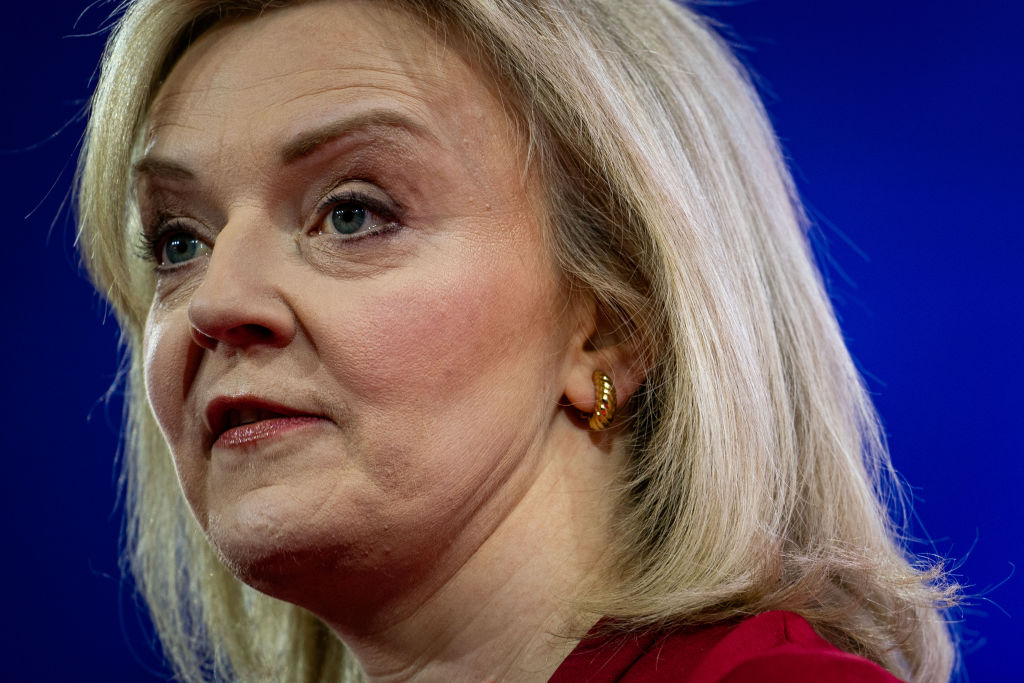It took 10 days for a senior Tory to write about the worst general election result in the party’s history. Unfortunately, that senior Tory is Liz Truss.
The most obvious feature of her article for the Telegraph on Sunday is a complete absence of contrition. We’re expected to believe that her errors as prime minister don’t even merit a mention, let alone an apology. And yet in her short time at Number 10, she spooked the markets and tanked her party’s poll ratings.
Nonetheless, it’s worth moving past the denial to her main argument, which is that the Tories were “ejected by an electorate angry at too many years of successive administrations failing to implement Conservative policies”.
In other words, she thinks the Tories lost because they weren’t Right-wing enough — and that’s in the low-tax, low-regulation, libertarian-lite sense of the term. However, one can’t help but notice that the combined Conservative-Reform UK vote share was just 38% in this month’s election. In 2019, when the Conservatives stood on a notably non-libertarian platform, they won 43.6% all on their own.
It’s hard to reconcile Trussite theory with these results. There are further inconvenient truths in new research from More in Common. According to Luke Tryl, this reveals that Labour “gained support from right leaning voter segments, but lost it on the left”. If, as Truss claims, the voters were upset by a Tory failure to roll back the “agenda pursued by the Blair and Brown governments”, then voting for Keir Starmer seems an odd way of showing it.
It’s true that the Conservatives bled support — mostly to Reform — over their failure to restrict immigration. But wasn’t it the Truss government that planned to lift immigration caps in order to promote economic growth? Indeed, isn’t the free flow of cheap labour completely consistent with her philosophy of radical de-regulation?
She also takes aim at “unaffordable Net Zero targets”. But if she imagines that these contributed to the Tory defeat, can she explain why true-blue seats were lost to the Green Party? It also seems to have slipped her mind that when she ran for the Tory leadership in 2022, she was herself in favour of Net Zero.
But the worst thing about Truss’s account of the last 14 years is that, so far, it’s the only one to be offered by a top Tory. With all eyes on the new Labour government, there’ll never be a better time for leading Conservatives to think out loud.
Certainly, there can be no recovery without a no-holds-barred reevaluation of the party’s past performance and future purpose. But apart from the Truss non mea culpa, the party has only produced the chaos surrounding the election of the new 1922 Committee and a series of rows and leaks involving those now jostling for the leadership.
What we haven’t had yet is a single serious interview, inspiring speech or thoughtful essay. The leadership contenders have been busy jockeying for position, but are yet to provide a compelling account of what they believe in. Admittedly, the whole intellectual rigour thing hasn’t been a hallmark of the last fourteen years but now, perhaps, it’s time for a change.











Join the discussion
Join like minded readers that support our journalism by becoming a paid subscriber
To join the discussion in the comments, become a paid subscriber.
Join like minded readers that support our journalism, read unlimited articles and enjoy other subscriber-only benefits.
Subscribe